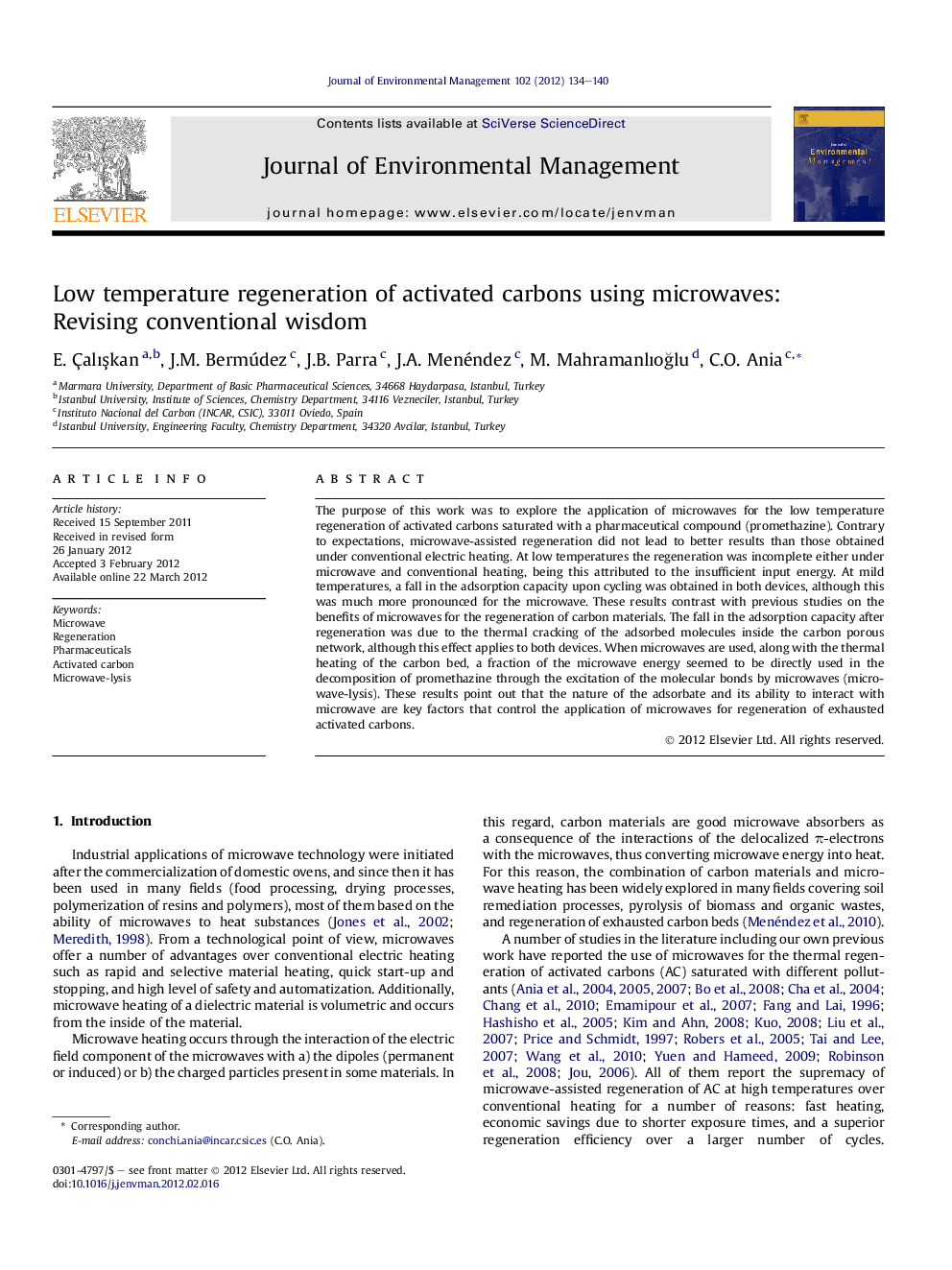| Article ID | Journal | Published Year | Pages | File Type |
|---|---|---|---|---|
| 1056821 | Journal of Environmental Management | 2012 | 7 Pages |
The purpose of this work was to explore the application of microwaves for the low temperature regeneration of activated carbons saturated with a pharmaceutical compound (promethazine). Contrary to expectations, microwave-assisted regeneration did not lead to better results than those obtained under conventional electric heating. At low temperatures the regeneration was incomplete either under microwave and conventional heating, being this attributed to the insufficient input energy. At mild temperatures, a fall in the adsorption capacity upon cycling was obtained in both devices, although this was much more pronounced for the microwave. These results contrast with previous studies on the benefits of microwaves for the regeneration of carbon materials. The fall in the adsorption capacity after regeneration was due to the thermal cracking of the adsorbed molecules inside the carbon porous network, although this effect applies to both devices. When microwaves are used, along with the thermal heating of the carbon bed, a fraction of the microwave energy seemed to be directly used in the decomposition of promethazine through the excitation of the molecular bonds by microwaves (microwave-lysis). These results point out that the nature of the adsorbate and its ability to interact with microwave are key factors that control the application of microwaves for regeneration of exhausted activated carbons.
Graphical abstractFigure optionsDownload full-size imageDownload as PowerPoint slideHighlights► Abnormal performance of microwave regeneration is firstly reported. ► Microwave regeneration efficiency was lower than expected. ► Regeneration efficiency using MW is governed by the nature of the pollutant. ► Coke deposits block the carbon porosity and reduce the regeneration efficiency. ► Microwave irradiation promotes bond cleavage (microwave-lysis).
